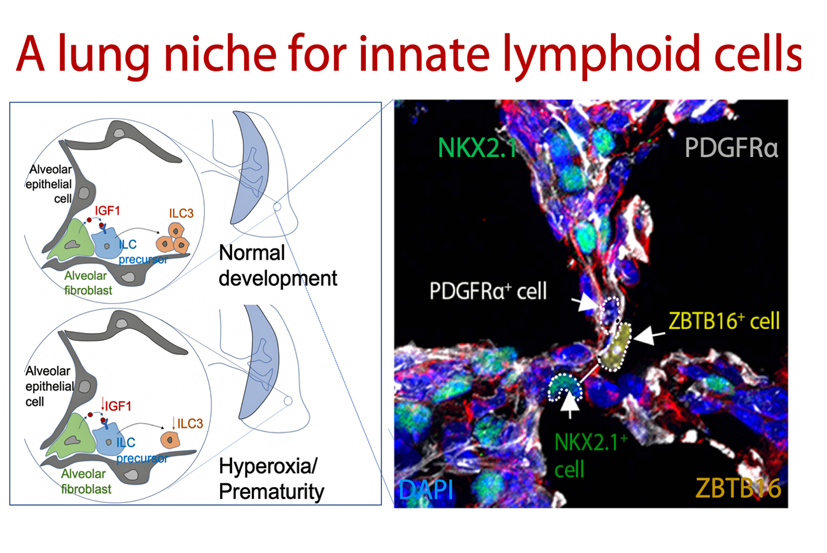Study Reveals Biological Process that Helps Underdeveloped Lungs Fight Infections
Research By: Hitesh Deshmukh, MD, PhD
Post Date: February 18, 2020 | Publish Date: Feb. 18, 2020

Cincinnati Children’s researchers report in Immunity the discovery of a complex biological process that in premature lungs stimulates production of Type 3 innate lymphoid cells in alveoli.
Born without these lymphoid cells, premature infants’ lungs cannot mount an effective immune defense against microbial infections. This opens the door to bacterial pneumonia and other severe respiratory illnesses, according study authors at our Perinatal Institute.
“This study gives us important new information that helps us develop new and cost effective methods to boost innate lung immunity in preterm babies. This could help them develop lifelong pulmonary resistance to respiratory infections,’’ said Hitesh Deshmukh, MD, PhD, senior study author and a Cincinnati Children’s neonatologist.

“This study gives us important new information that helps us develop new and cost effective methods to boost innate lung immunity in preterm babies. This could help them develop lifelong pulmonary resistance to respiratory infections,’’ said Hitesh Deshmukh, MD, PhD, senior study author and a Cincinnati Children’s neonatologist.
| Original title: | Insulin like growth factor 1 supports a pulmonary niche that promotes type 3 innate lymphoid cell development in newborn lungs |
| Published in: | Immunity |
| Publish date: | Feb. 18, 2020 |
Research By








